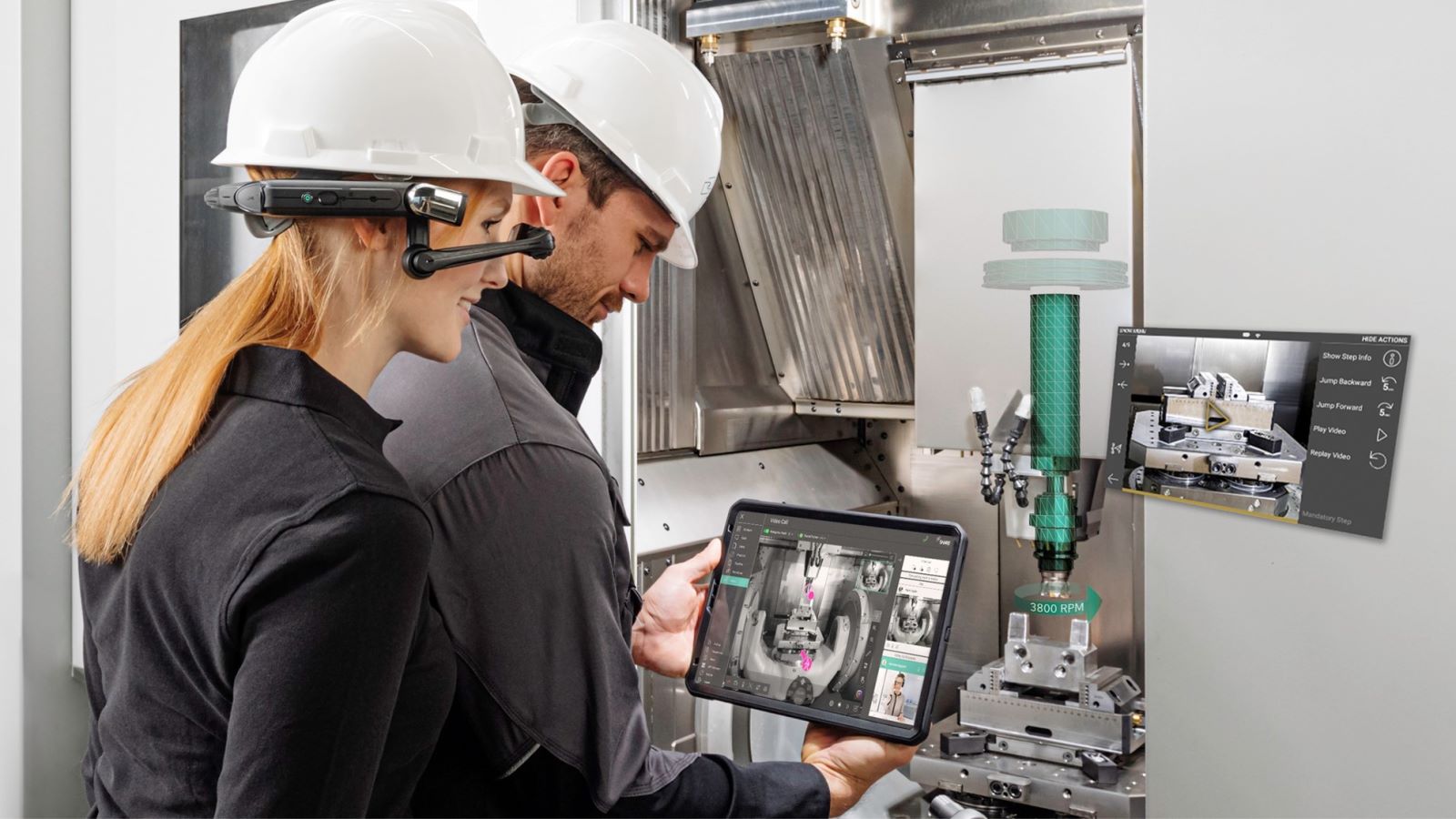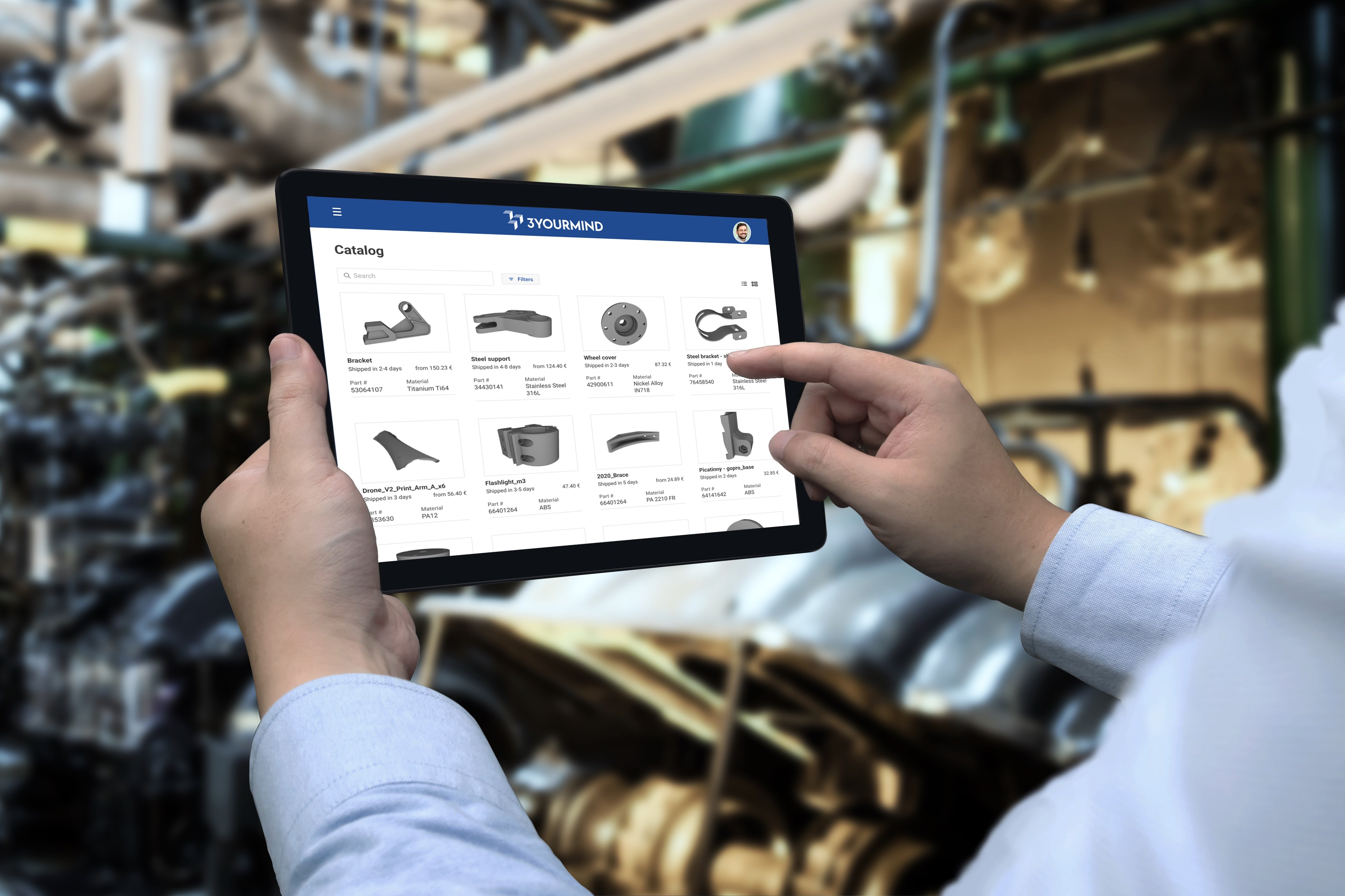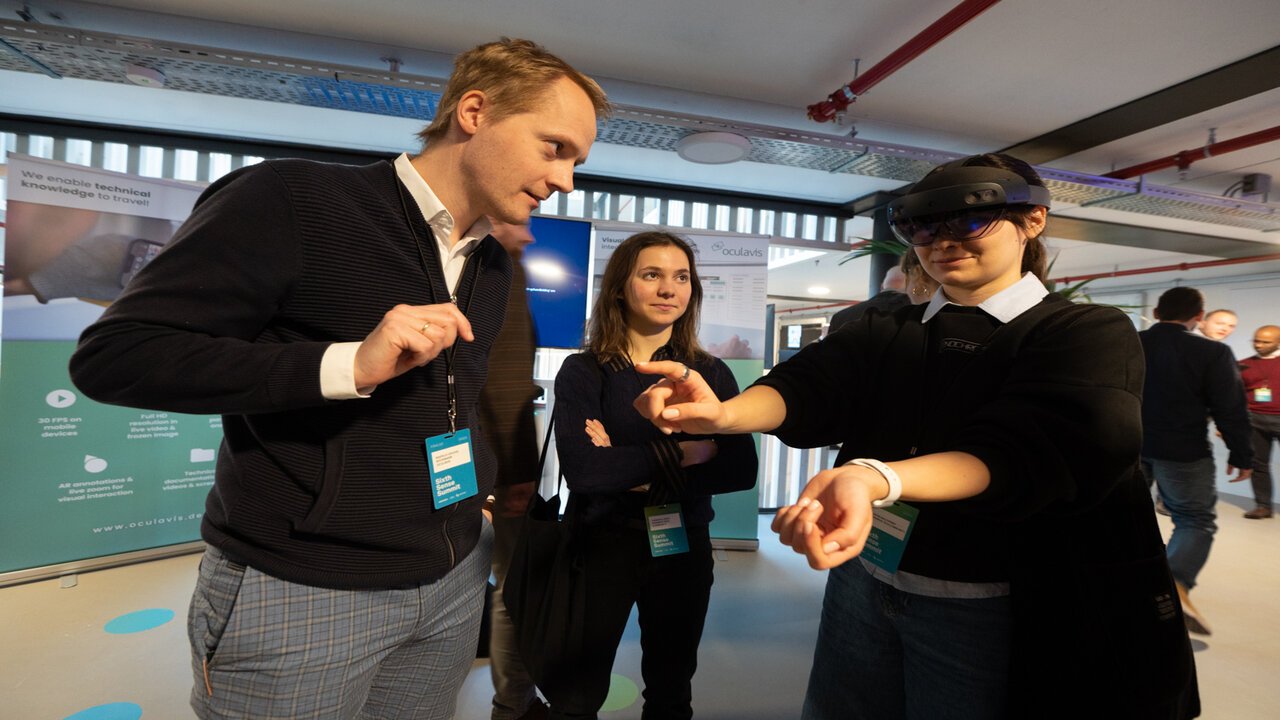It's difficult for a startup to penetrate an old-school B2B sector like manufacturing. Even a company spun out of a university, with scientific validation and peer review cred, can still need help with challenges like building relationships with C-suites and end-users, not to mention the ability to create a product at scale that's the right market fit.
I know an industrial startup in Germany whose co-founders even started smoking, visiting shift workers on their smoke breaks to get their support for their tech at a user level.
But fortunately, there's another way. Sixth Sense is an innovation ecosystem bringing scaling startups together with some of the world's biggest companies to turn real-world problems into transformative solutions.
Startups get an opportunity to share valuable resources and gain access to Hexagon's technology, data and customers. Since its inception, over 200 startups have applied, with 15 going through the program.
I visited the second graduation class yesterday and watched them pitch their product offerings — congratulations to Gelsight!
But as we dedicate ourselves to the European tech scene, let's take a look at who else was part of the program:
oculavis (Germany)

COVID-19 taught us that remote often triumphs over in-person work. And this is the case in offices and industrial settings like mining worksites and factories.
oculavis GmbH emerged from Fraunhofer Society and RWTH Aachen University in 2016. The company develops software that aids field workers and technicians in solving problems with machines and equipment.
Using oculavis' augmented reality embedded software, a technician can conduct error analysis and correction, inspections, repairs, and maintenance of machines and systems remotely on a desktop, mobile app, tablet or AR glasses without needing to visit a work site.
The company found that technicians could reduce their site visits by up to 20%, reducing delays, increasing efficiency, and lowering transport miles with an all-important nod to sustainability.
Oculavis' software integrates with project management tools, for example managing worker tasks and ordering spare parts.
The software also facilitates video documentation so technicians can learn new skills or sequential procedures or deploy in a customer service app with machine-specific up-to-date documentation.
The company received €2.5 million in EU funding in 2019.
Threedy (Germany)
What if you could turn data into visual, highly interactive, engaging formats that help you gain insights and solve problems?
But in modern IT and software landscapes, industrial 3D data and applications are traditionally considered foreign bodies requiring special treatment due to the enormous interdependency and complexity of data size, algorithms, and device capabilities.
In response, Threedy develops visual computing technology to translate 3D, business and process data into 3D applications using augmented and mixed reality.
This makes it possible to exploit the value of 3D data throughout the entire value chain for a wide range of application scenarios, platforms, and devices to enable Digital Twins or Industrial Metaverse implementations.
Collaborative projects can be developed remotely across multiple devices with, for example, coworkers, suppliers, or customers.
Based in Darmstadt, Germany, the company spun out from Fraunhofer IGD. The company raised €1.8M in seed funding in 2020. Its customers include Mercedes Benz, BMW, EDF, and Siemens
Teratonics (France)
Advanced materials and processes are increasingly being introduced in manufacturing to increase design sustainability. However, as the complexities grow, so does the probability of defects.
Founded in 2017, Teratonics offers innovative solutions for contactless non-destructive testing and imaging inside materials like plastics or composites and on coated surfaces.
This is all possible through using ultrashort Terahertz pulses in Teratonics patented technology. Terahertz is the frequency of electromagnetic radiation in the submillimeter range.
The non-hazardous technology can reveal invisible structural defects. It can simultaneously control the dimensions in the production cycle time, preventing defective parts' financial and environmental costs.
Current use cases include 3D scanning in car and aircraft manufacturing but will extend to renewable energy and medical applications.
3YOURMIND (Germany)
Over the last few years, industries such as automotive, manufacturing and battery making have been hard hit by supply chain woes caused by COVID-19 shutdowns, the war in Ukraine, and transportation bottlenecks.
In response, more and more European companies realise the importance of reducing their reliance on offshore manufacturing by bringing production locally and even in-house.

Enter additive manufacturing, also known as 3D printing, making it possible to create three-dimensional objects directly from a computer design file such as a 3D CAD file. These are fast to make and use fewer materials than their traditional counterparts.
3D printing also makes it possible to prolong the life of legacy equipment by printing parts no longer available.
Berlin company 3YOURMIND has developed end-to-end software to help companies identify and inventory parts suitable for 3d printing. Customers include Deutsche Bahn, which uses 3YourMind software to gather employee ideas for 3d printing.
The software then analyses the ideas and identifies the use cases with the highest production potential. From this, Deutsche Bahn has assembled a digital spare parts warehouse.
In 2022 the 3YOURMIND partnered with other members of the 3D printing community to launch the 'Stand With Ukraine' initiative to support Ukrainian humanitarian and defence efforts in making parts like tourniquets, from anywhere in the world and deliver them to Ukrainian aid organisations.
The 'Stand With Ukraine' effort has printed and delivered over 38.000 parts and saved over 30 lives.
The company has raised $32.9M in funding over six rounds.
Lead image: oculavis GmbH.



Would you like to write the first comment?
Login to post comments